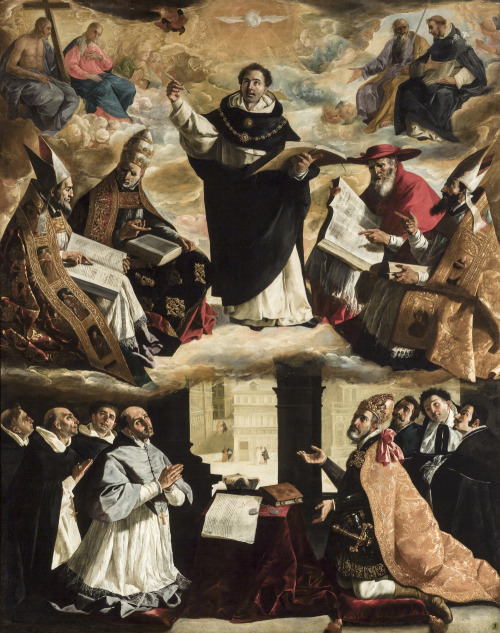The strength of Aquinas’s legal philosophy lies in the theory of the contents of law and particularly of natural law.
The eternal law impresses itself on rational creatures and endows them with an inclination toward their proper actions and ends. This participation of the rational creature in eternal law is called natural law. The light of natural reason by which we distinguish between good and bad is the refraction of the divine light in us (91.2). All law, insofar as it participates in right reason, is derived, therefore, from eternal law (ST 93.3).
In accordance with the limitations of human nature, direct knowledge is restricted to general principles only. As such are enumerated: self-preservation, preservation of the species through procreation and education, preservation of the rational nature through desire for the knowledge of God and the inclination toward civilized community life (94.2). The construction is metaphysically on the level of the Stoic theory of natural or common law, the koinos nomos, and participation in it is through the apospasma, the spark of the nomos in the individual man, although the anthropology has become Christian.
The Stoic-Hellenistic conception could lead on the one side to the Neoplatonic theory of individual illumination, which is still discernible in Saint Augustine, on the other side to the collectivist assumption of the anima intellectiva, which we observed in the Averroist theory of Siger de Brabant. For Thomas participation in the lex aeterna is objective insofar as it does not depend on individual illumination; and it gives due weight to the singularity of the person insofar as it conceives of the legally ordered community as a cooperative effort of the free homines christiani.

Systematically, the ontological foundation of a theory of natural law by Aquinas is probably the only tenable position for a philosophy of law. If the recourse to the transcendental lex aeterna is not taken, we have a choice between the alternatives: either having no ontological foundation at all for the contents of the legal order and accepting as valid every positive order that can compel submission; or erecting the intramundane elements, such as instincts, desires, wants, secular reason, the will to power, the survival of the fittest, etc., into absolutes.
The first course is nihilistic; the second is unable to integrate transcendental religious experiences into the philosophy of ethics and law. Thomas’s theory is a classic solution insofar as it gives a religious foundation to a legal order that respects the ontological structure of human existence. The transcendental foundation does not determine the type of community to be ordered.
Aquinas’s philosophy of law has lasting importance for Western political thought because it harmonizes the Christian spiritual personality with the natural perfect community. The “perfect community” is an elastic formula with unpredictable potentialities. In the system of Thomas it is no longer identical with the Hellenic polis but remains on the whole nondescript with regard to the social type that it denotes. The political people were later made to fill the skeletal formula, and other types that may grow into the stature of “perfection,” such as federations of peoples, may enter it as well.
In this respect Thomas’s theory is eminently dynamic; its function in Western civilization insofar as it is Christian has by no means come to an end.
(This excerpt is from History of Political Ideas, Volume II: The Middle Ages to Aquinas [Collected Works of Eric Voegelin 20])
*Image: The Apotheosis of Saint Thomas Aquinas by Francisco de Zurbarán, 1631 [Museum of Fine Arts, Seville]















